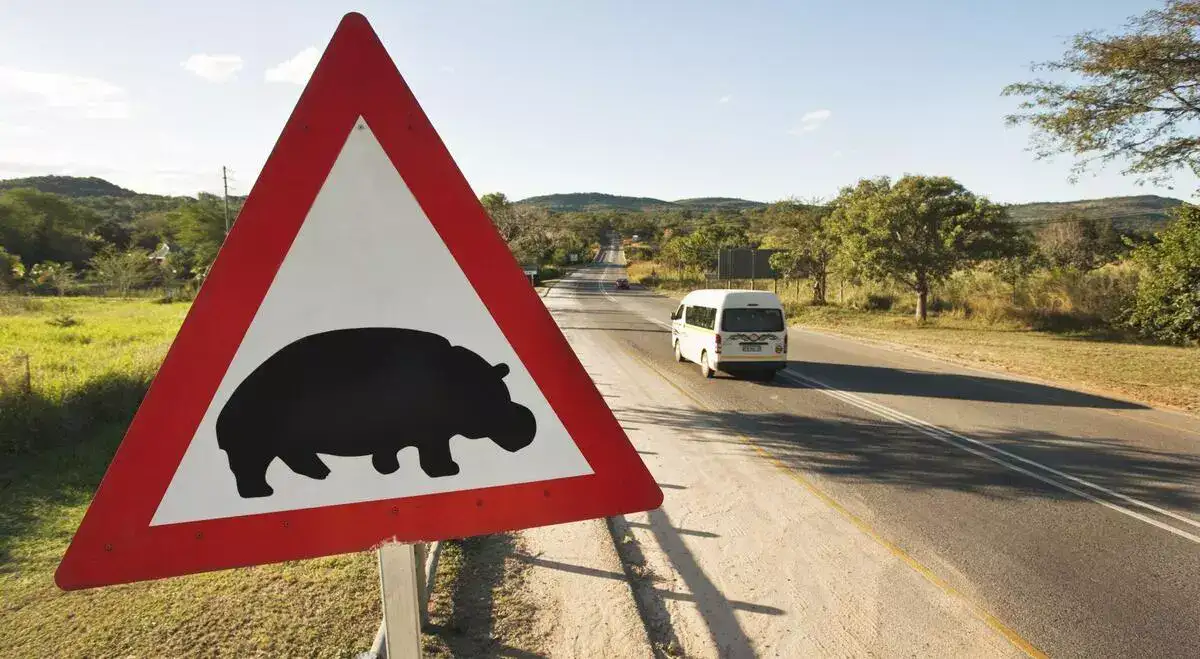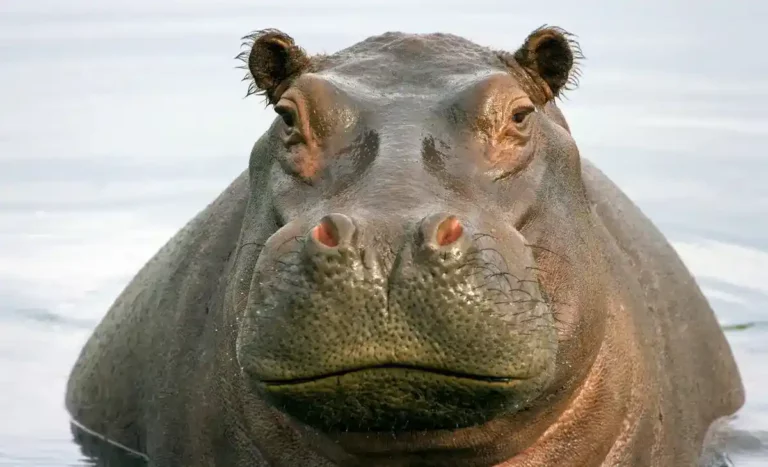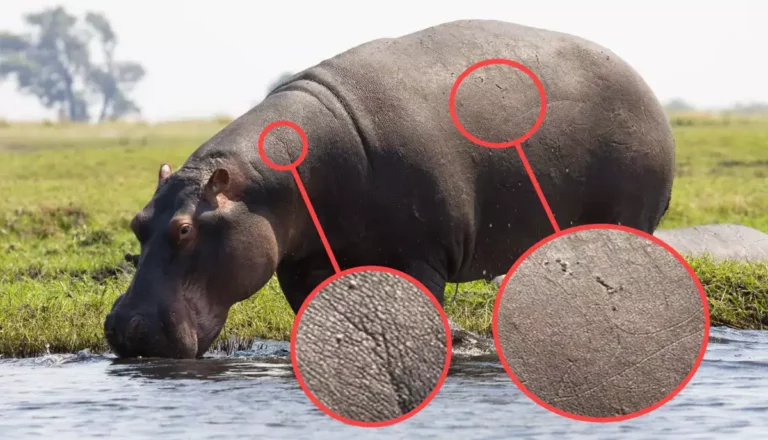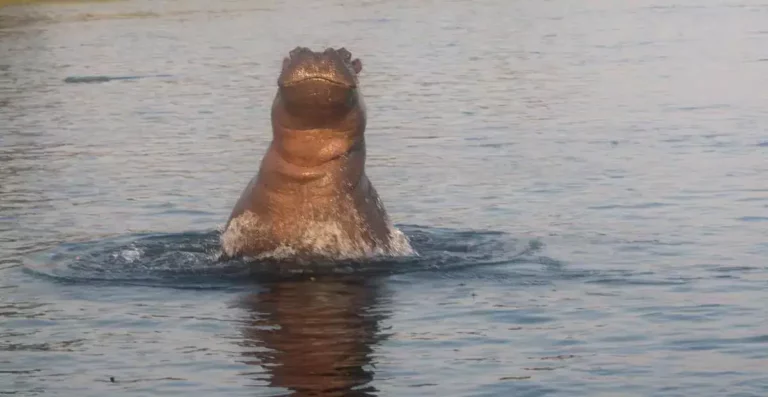
Are hippos dangerous? This question often comes to mind when considering these large semi-aquatic mammals. Hippos, also known as hippopotamuses, are found in sub-Saharan Africa and are known for their massive size and aggressive behavior.
Hippos are notorious for their aggressive behavior and are considered one of the most dangerous land animals. They possess sharp tusks that can grow up to a foot long and weigh over 3,000 pounds on average. Every year in Africa, they are responsible for around 500 human fatalities. Although hippos don’t prey on humans, they attack if they feel their territory is threatened.
Are Hippos Dangerous?
Despite their seemingly docile appearance, hippos are one of the most dangerous animals in Africa, responsible for more human fatalities than lions, crocodiles, and even sharks.
As reported by AZ Animals, Hippos are a notable threat on land, responsible for about 500 human fatalities annually in Africa. This death toll is considered notably high compared to other creatures inhabiting the planet.
Why Are Hippos Dangerous?
Hippos are dangerous due to the following factors:
- Massive Size and Weight
- Territorial Behavior
- Aggressive Nature
- Powerful Jaws and Teeth
- Fast on Land and in Water
Massive Size and Weight
Hippos are massive animals that can weigh up to 4,000 pounds. Their size and weight alone can make them dangerous to humans, especially if they feel threatened or cornered.
Territorial Behavior
Hippos are known for their territorial behavior, especially during mating season. They will fiercely protect their territory and can attack anything or anyone that they perceive as a threat.
Aggressive Nature
Hippos have a reputation for being one of the most aggressive animals in Africa. They have been known to attack boats and even people without provocation.
Powerful Jaws and Teeth
Hippos have incredibly powerful jaws that can easily crush bones. They also have long, sharp teeth that they can use to defend themselves or attack predators.
Fast on Land and in Water
Despite their large size and bulk, hippos are surprisingly fast on land and water. On land, hippos can run up to 20-30 mph over short distances, although they are not particularly agile animals. In water, hippos are excellent swimmers and can reach speeds of up to 5-8 mph, which allows them to move easily through the rivers and lakes where they live.
How Are Hippos Dangerous For Humans and Other Animals?
Hippos possess an efficient weapon for self-defense: their sharp incisors and canines. With a single bite, these teeth can crush any adversary, including humans, crocodiles, or lions. The hippopotamus can open its mouth to 150 degrees, allowing for a wider bite range. The canines of hippos can reach up to 50 cm in length, while the incisors can grow up to around 40 cm. These teeth are always sharp as they regularly grind against each other.
Hippos possess an impressive bite force of approximately 1800 pounds per square inch (PSI). This is nearly three times more than that of a lion, about 650 PSI, and around 15 times more than the average human bite force of 126 PSI. The combination of the hippo’s ability to open its mouth wide, its long and strong teeth, and its extraordinary bite force make it an animal that should not be messed with by any other creature, including humans.
Final Thoughts
In conclusion, hippos are one of the most dangerous land animals, responsible for many human fatalities in Africa yearly. Their massive size, territorial behavior, aggressive nature, powerful jaws and teeth, and impressive speed on land and water make them formidable adversaries.
Respecting their space and avoiding provoking them is crucial, as their self-defense mechanism can result in severe injury or even death. While hippos may appear docile, keeping a safe distance and observing them from afar is best.





